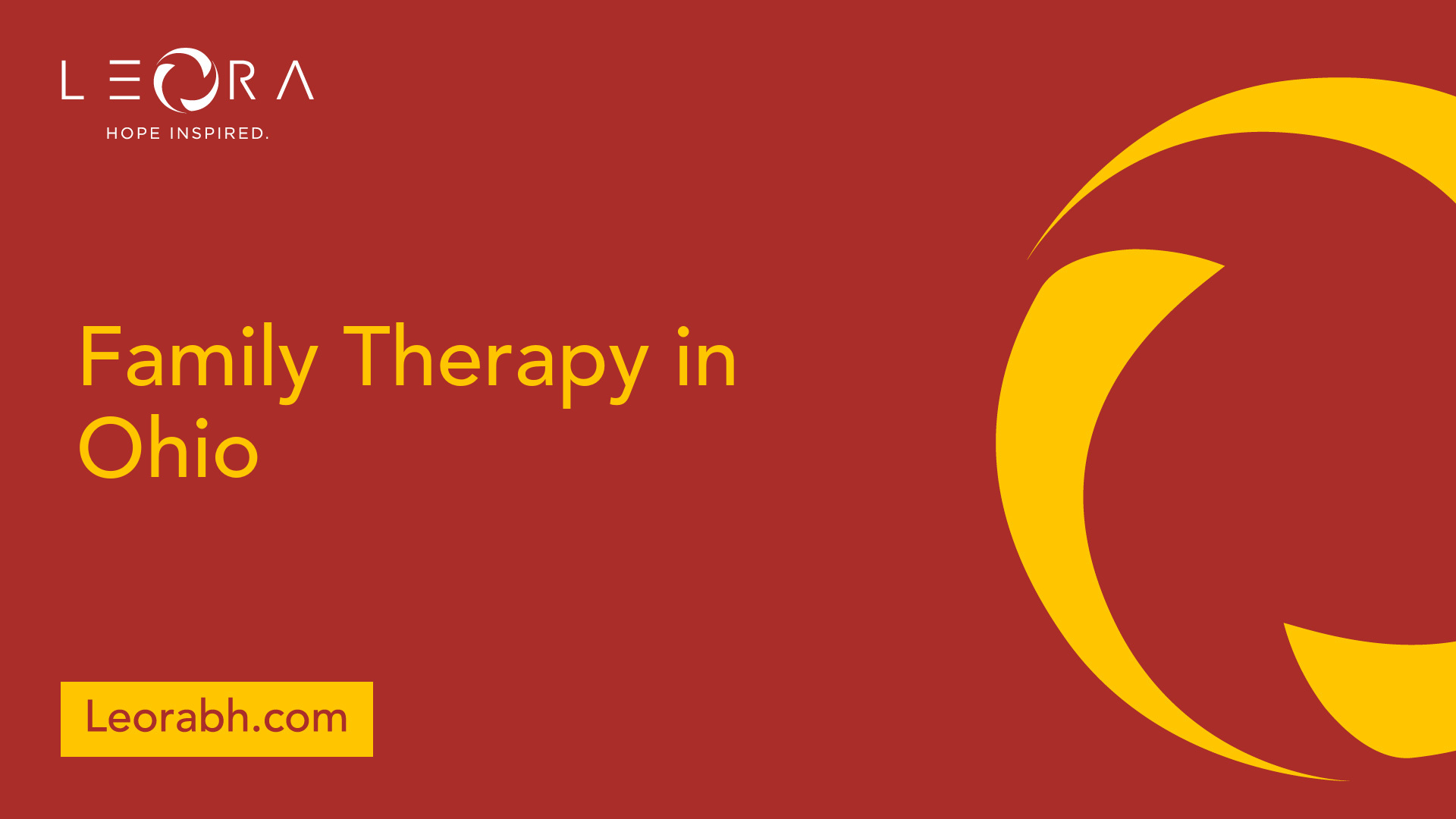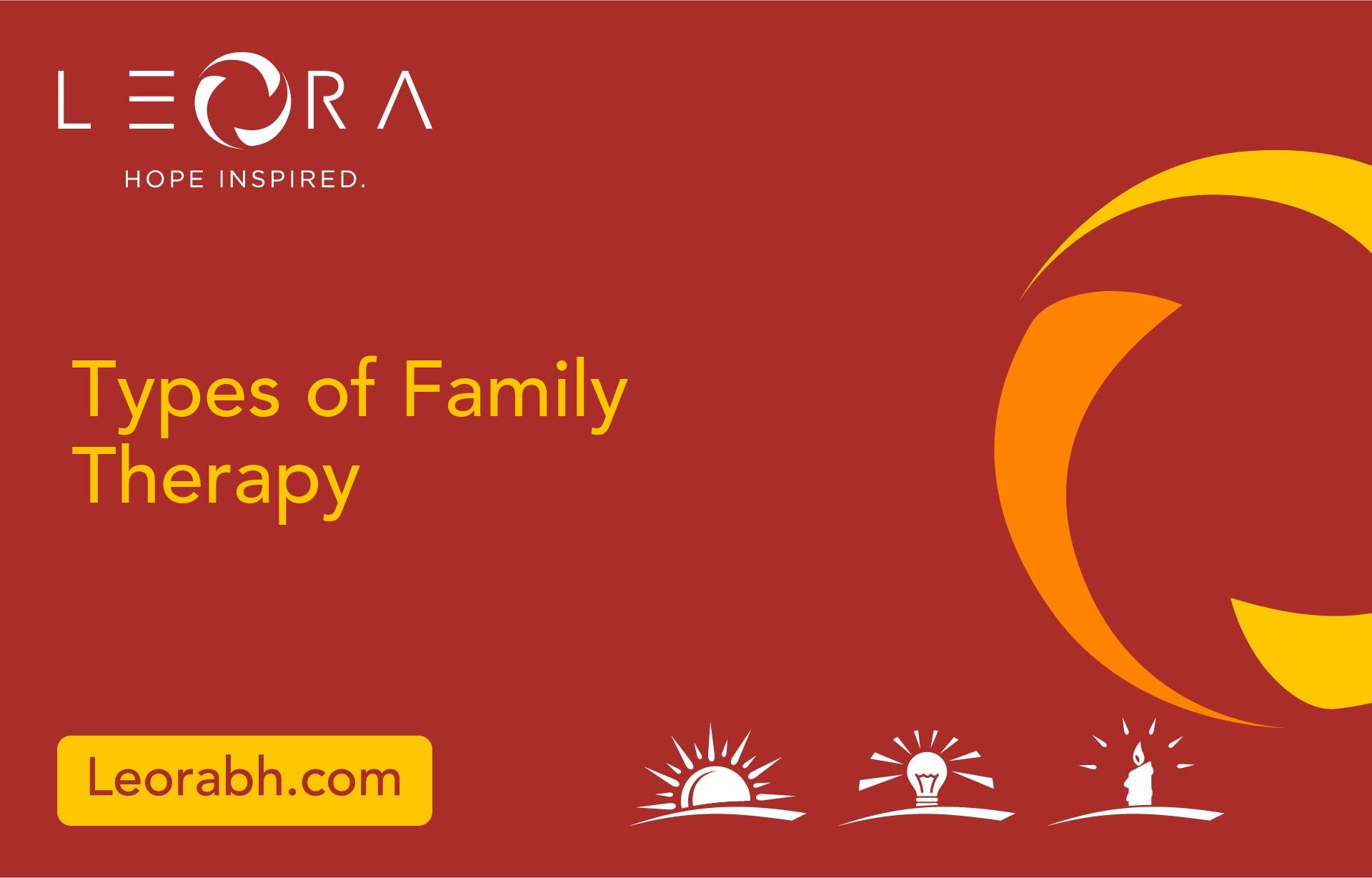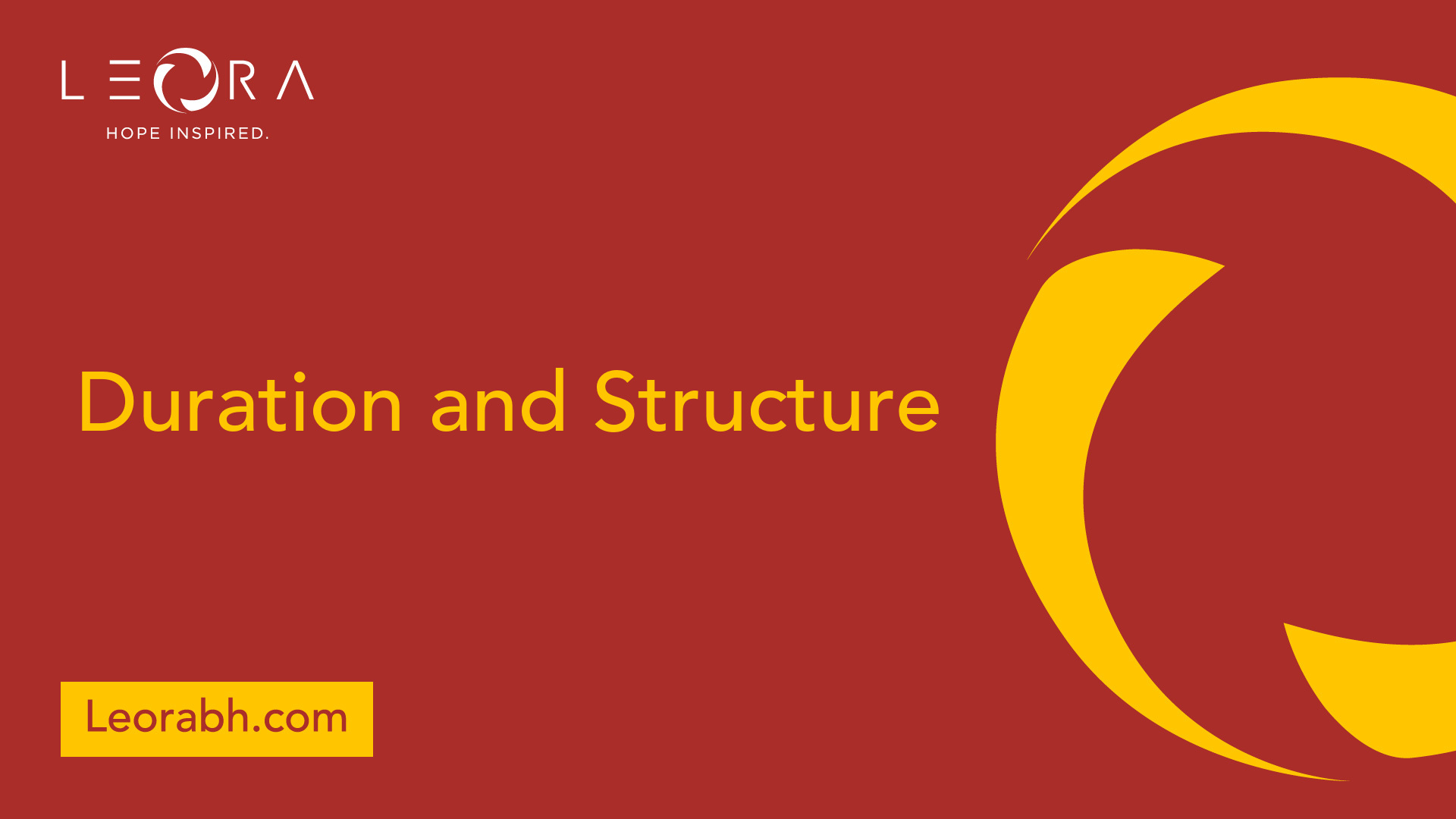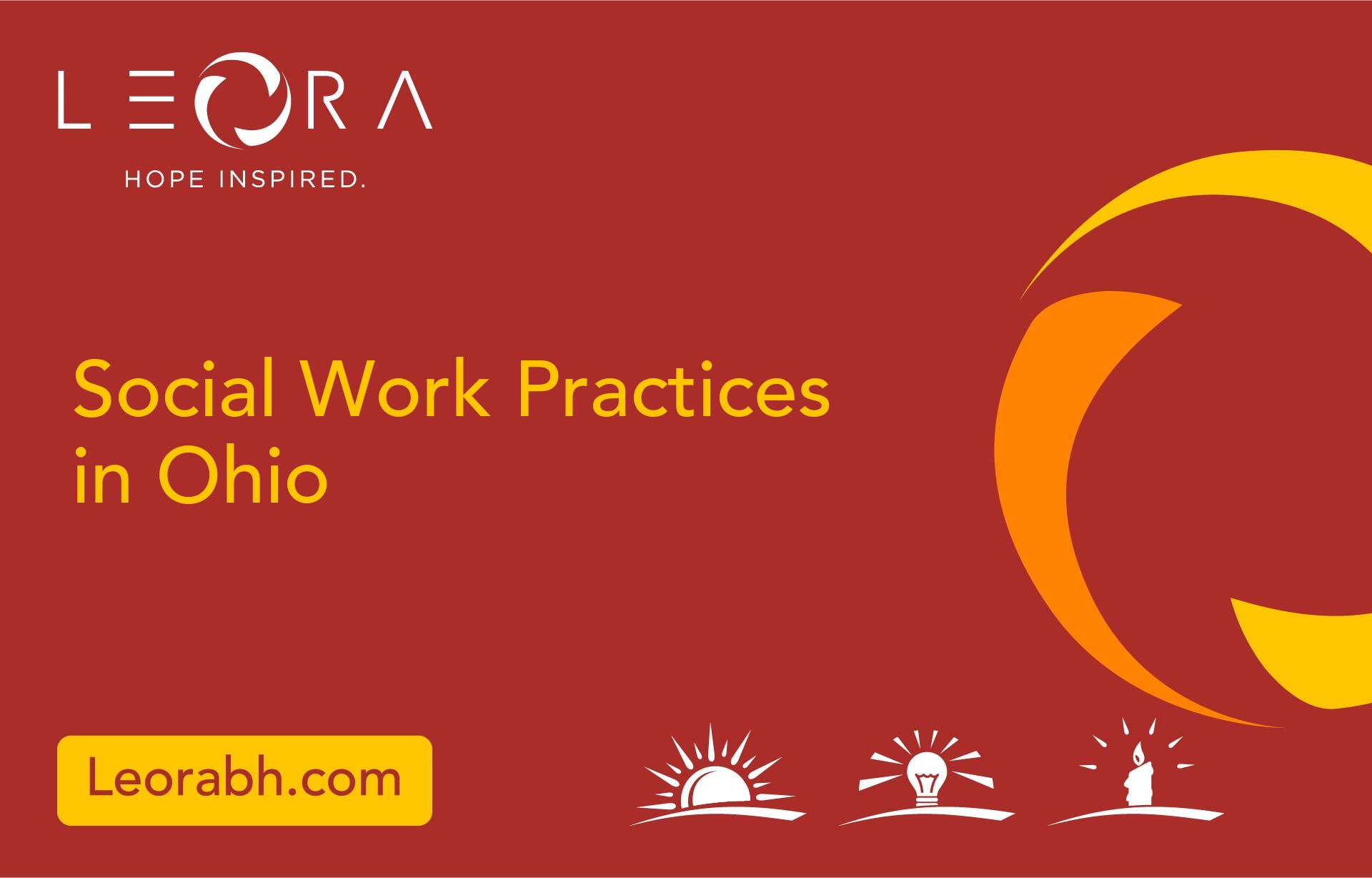Family Therapy in Ohio Mental Health Programs
Discover family therapy in Ohio mental health programs: from benefits and types to program development and innovative models.

Family Therapy in Ohio
In the realm of mental health programs in Ohio, family therapy plays a significant role in supporting individuals and their loved ones through various mental health challenges. Family therapy involves any combination of family members, including parents, siblings, grandparents, and friends, engaging with a trained mental health professional specializing in family dynamics [1].
Role of Family Therapy
The primary role of family therapy in Ohio mental health programs is to enhance family functioning and overall well-being by addressing interpersonal issues, improving communication, and fostering support systems within the family unit. By involving the entire family in the therapeutic process, family therapy aims to strengthen relationships, promote understanding, and facilitate effective problem-solving strategies.
Through guided sessions with a licensed mental health professional, families can explore underlying dynamics, recognize patterns of behavior, and develop coping mechanisms to navigate challenging situations. The counselor acts as a facilitator, providing guidance, education, and a safe environment for family members to express their thoughts and feelings openly.
Benefits of Family Therapy
Family therapy in Ohio mental health programs offers a range of benefits for individuals and families facing various mental health conditions. It has been shown to be effective in treating conditions such as addiction, depression, anxiety, ADHD, autism spectrum disorder, and more [1]. Some key benefits of family therapy include:
- Enhanced Family Relationships: Family therapy can help improve communication, resolve conflicts, and strengthen bonds among family members. By fostering understanding and empathy, family members can build healthier and more supportive relationships.
- Improved Coping Skills: Through education and counseling, family therapy equips individuals and families with effective coping strategies to manage stress, challenges, and mental health symptoms. This empowers families to navigate difficulties more effectively and promotes resilience.
- Support Network Development: Family therapy provides a platform for family members to connect with others in similar situations, creating a supportive network. This sense of community can offer encouragement, validation, and a shared understanding of the struggles faced during the recovery process.
- Overall Family Functioning: By addressing individual and relational issues within the family system, family therapy can enhance overall family functioning. This may lead to improvements in work and school performance, family dynamics, and the ability to navigate daily life stressors more effectively.
Family therapy programs at facilities like Evoke Wellness at Hilliard in Ohio focus on educating individuals struggling with addiction and their families, offering support, and creating comprehensive coping plans to effectively manage addiction and support recovery [2]. By actively involving families in the treatment process and providing education and support, family therapy plays a crucial role in promoting lasting sobriety and holistic well-being for individuals and their loved ones.

Types of Family Therapy
In the realm of mental health programs in Ohio, family therapy plays a crucial role in addressing various mental health conditions and strengthening family relationships. Two key types of family therapy utilized within Ohio mental health programs are psychoeducation and diverse approaches in therapy.
Psychoeducation
One method commonly integrated into family therapy programs in Ohio is psychoeducation. This approach focuses on providing essential information about mental health conditions, including their causes, treatments, outcomes, and coping strategies, to families dealing with a member experiencing such conditions. By educating families on these aspects, psychoeducation aims to enhance their understanding of the mental health challenges faced by their loved ones and equip them with the knowledge to offer effective support and encouragement.
Psychoeducation sessions within family therapy programs often cover topics like symptom recognition, effective communication strategies, crisis management, and available community resources. These sessions serve as a platform for open discussions and collaborative problem-solving between family members and mental health professionals, fostering a supportive and informed environment conducive to the overall well-being of the individual in need.
Approaches in Therapy
Ohio mental health programs encompass a diversity of therapeutic approaches within family therapy to cater to the unique needs of each family unit. Therapists may draw from various therapeutic modalities, such as cognitive-behavioral therapy, narrative therapy, solution-focused therapy, and systemic family therapy, to tailor interventions that resonate with the dynamics and challenges specific to the family.
By integrating elements from different therapeutic approaches, mental health professionals in Ohio can construct a comprehensive and personalized treatment plan that addresses the emotional, relational, and psychological aspects of the family unit. This integrative approach allows for the exploration of deep-rooted issues, the establishment of healthier communication patterns, the nurturing of empathy and understanding among family members, and the development of effective coping strategies for managing mental health conditions collectively.
In Ohio's mental health landscape, the synergy between psychoeducation and multifaceted therapeutic approaches underscores the holistic and collaborative nature of family therapy, aiming to not only alleviate individual mental health symptoms but also fortify familial bonds and resilience in the face of challenges. Through these tailored interventions and educational initiatives, family therapy endeavors to empower families to navigate the complexities of mental health conditions with knowledge, empathy, and solidarity.

Mental Health Conditions
In the realm of mental health programs, family therapy plays a pivotal role in supporting individuals dealing with various mental health conditions. This section explores the mental health conditions that are commonly supported by family therapy and the impact it has on family relationships.
Supported by Family Therapy
Family therapy in Ohio mental health programs is beneficial for a wide range of mental health conditions, including but not limited to anorexia, divorce, addiction, depression, anxiety, ADHD, and autism spectrum disorder. According to the Cleveland Clinic, family therapy can aid in improving family relationships, facilitating conflict resolution, and enhancing overall functioning at work or school.
The collaborative approach of family therapy not only focuses on the individual's mental well-being but also considers the familial dynamics and environments that can contribute to or alleviate mental health challenges. By involving family members in the therapeutic process, individuals can receive comprehensive support that addresses not only their symptoms but also the underlying relational factors that may impact their mental health.
Impact on Family Relationships
The impact of mental health conditions on family relationships can be profound, affecting communication dynamics, emotional connections, and overall family functioning. Family therapy interventions are designed to address these challenges and strengthen familial bonds by fostering understanding, empathy, and effective communication among family members.
At facilities like Evoke Wellness at Hilliard in Ohio, family therapy programs focus on educating individuals struggling with addiction and their families, providing essential support, and creating a plan to cope with addiction. This support system enables families to engage in discussions about mental health concerns, improve communication practices, and navigate family challenges together, ultimately preparing them to support their loved ones through treatment and recovery [3].
Family therapy for mental health conditions not only benefits the individual receiving treatment but also empowers family members to become active participants in the healing process. Through education, support, and a safe environment for open dialogue, family therapy programs equip families with the tools and resources needed to effectively support their loved ones on the journey to recovery and long-term well-being.
By addressing the complex interplay between mental health conditions and family dynamics, family therapy in Ohio mental health programs serves as a holistic approach to treatment, emphasizing the importance of familial support, understanding, and collaboration in promoting mental wellness and resilience.

Duration and Structure
In the realm of family therapy within mental health programs in Ohio, the duration and structure of therapy sessions play a crucial role in the effectiveness of treatment. Understanding the differences between short-term and long-term therapy, as well as the frequency of sessions, is essential for optimizing outcomes for families seeking support.
Short-term vs. Long-term
Family therapy sessions in Ohio can vary in duration, catering to the specific needs and circumstances of each family. Short-term therapy sessions typically span an average of 12 sessions, focusing on addressing immediate issues and providing targeted interventions to improve family dynamics [1]. In contrast, long-term therapy may extend over months or even years, delving into complex mental health conditions, deep-rooted family dynamics, and ongoing support for sustained progress.
The decision between short-term and long-term therapy hinges on factors such as the severity of the mental health conditions, treatment goals, family dynamics, and the agreement between the therapist and the family. Some families engage in therapy intermittently over the years to address recurring issues or adapt to new challenges as they arise.
Frequency of Sessions
The frequency of family therapy sessions in Ohio is another critical aspect that influences the overall structure and effectiveness of treatment. The number of sessions per week or month can vary based on the immediate needs of the family, the intensity of the issues being addressed, and the therapeutic approach employed.
For some families, weekly sessions may provide the necessary support and guidance to navigate challenging situations and implement behavioral changes. In contrast, others may opt for bi-weekly or monthly sessions, allowing time for reflections between sessions and gradual implementation of therapeutic strategies.
Consistency in session frequency is key to maintaining momentum and fostering positive changes within the family dynamic. It enables families to explore and address underlying issues progressively, build on insights gained during therapy, and work collaboratively towards achieving therapeutic goals.
By considering the duration and structure of family therapy sessions, families in Ohio can make informed decisions about the type of therapy that best suits their needs and preferences. Whether opting for short-term interventions to address specific concerns or embracing long-term support for comprehensive mental health care, the flexibility and tailored approach of family therapy programs offer valuable resources for families seeking to strengthen relationships and promote mental well-being.

Social Work Practices in Ohio
Social work practices in Ohio encompass a wide range of mental health services aimed at assisting individuals, families, and groups in improving their social functioning. Within the scope of social work in Ohio, various methods and interventions are employed to address psychosocial issues and promote overall well-being.
Definition and Scope
As defined by the Ohio Administrative Code, social work in Ohio involves the application of specialized knowledge of human development, behavior, social systems, and cultural factors. Social workers directly assist individuals, families, and groups in enhancing or restoring their capacity for social functioning. This includes providing counseling, utilizing psychosocial interventions, and offering social psychotherapy services for a fee, salary, or other considerations. The practice of social work in Ohio plays a crucial role in supporting mental health and social well-being across diverse populations within the state.
Counselor Roles
Within the realm of social work in Ohio, counselors play a vital role in providing support and interventions to individuals, couples, families, and groups facing various challenges. Through counseling, social workers assist clients in problem-solving, decision-making, and addressing a range of personal, health, social, educational, vocational, financial, and interpersonal concerns. The Ohio Administrative Code elucidates that counseling within the practice of social work is a dynamic method used to empower individuals and communities to overcome obstacles and enhance their quality of life.
The practice of social psychotherapy in Ohio, under the umbrella of social work, focuses on improving and maintaining the psychosocial functioning of individuals, families, and small groups. By applying social work theories and methods, social workers engage in the treatment and prevention of psychosocial dysfunction, disability, or impairment, including mental and emotional disorders. This holistic approach underscores the importance of addressing mental health concerns within the context of broader social and emotional well-being.
In the context of family therapy, which falls under the domain of marriage and family therapy in Ohio, practitioners offer specialized services aimed at enhancing family dynamics and relationships. These services are provided for a fee, salary, or other considerations, aligning with the regulations outlined in the Ohio Administrative Code. Family therapy plays a fundamental role in addressing relational challenges, improving communication, and fostering resilience within family systems.
The regulations and guidelines outlined in the Ohio Administrative Code provide a robust framework for the practice of family therapy and social work in the state. By adhering to these standards, social workers and counselors in Ohio uphold the highest quality of care and support for individuals and families in need of mental health services.
Educational Requirements
To pursue a career in family therapy in Ohio, aspiring professionals must meet specific educational requirements set forth by Ohio Administrative Code. Two critical aspects of the educational journey for marriage and family therapy in Ohio include completing a graduate degree in marriage and family therapy and obtaining COAMFTE accreditation.
Marriage and Family Therapy
In Ohio, the educational requirements for marriage and family therapy entail obtaining a graduate degree that aligns with systemic theory and approaches. The degree program should consist of a minimum of ninety quarter hours or sixty semester hours of coursework. This comprehensive curriculum encompasses various essential areas such as:
- Marriage and family therapy theory
- Clinical treatment of individuals, couples, and families
- Research methodologies in the field
- Professional ethics in therapy practice
- Understanding individual and family development
- Appraisal techniques for individuals and families
- Family therapy within diverse communities
This structured educational framework ensures that future family therapists in Ohio are well-equipped with the necessary knowledge and skills to provide effective and ethical therapy services to individuals and families facing mental health challenges.
COAMFTE Accreditation
Additionally, programs accredited by the Commission On Accreditation Of Marriage And Family Therapy Education (COAMFTE) play a crucial role in meeting the educational requirements for a graduate degree in marriage and family therapy in Ohio. COAMFTE-accredited programs are recognized for their adherence to high standards of educational quality and their commitment to preparing students for successful careers in family therapy.
By obtaining a graduate degree from a COAMFTE-accredited program, aspiring family therapists in Ohio can demonstrate that they have completed a rigorous and comprehensive course of study that aligns with the state's guidelines and expectations for marriage and family therapy education. This accreditation ensures that professionals entering the field of family therapy have received the foundational knowledge and training necessary to excel in their practice and support individuals and families in need of mental health services.
Program Development
In the realm of mental health programs, the development of effective family therapy initiatives plays a crucial role in supporting individuals and families dealing with addiction and recovery challenges. Let's delve into two key aspects of program development in Ohio: Evoke Wellness Family Therapy and Addiction Recovery Support.
Evoke Wellness Family Therapy
Evoke Wellness at Hilliard in Ohio offers a comprehensive family therapy program designed to educate individuals battling addiction and their families. The program focuses on providing support, enhancing understanding of addiction, and fostering coping strategies to navigate the challenges associated with addiction recovery [3].
Participants in the family therapy program receive education on addiction, learn to identify signs of addiction and relapse, and collaborate with counselors to establish personalized coping plans. Through group and individual therapy sessions, family members connect with others facing similar circumstances, creating a supportive network that aids in the recovery journey.
The essence of family therapy at Evoke Wellness is to equip patients and their families with knowledge about addiction, its effects, and the significance of positive support. This proactive approach aims to mitigate judgments, foster mutual understanding, and cultivate a nurturing environment for families grappling with addiction-related challenges.
By providing education and support to families with loved ones facing addiction, Evoke Wellness underscores the importance of building a strong support system. This proactive engagement enables open dialogues about mental health issues, enhances communication, and equips families with the tools needed to effectively navigate the treatment and recovery process, ultimately enhancing the likelihood of lasting sobriety.
Addiction Recovery Support
In the context of mental health programs in Ohio, addiction recovery support serves as a cornerstone for individuals embarking on the path to sobriety. Programs like those offered at Evoke Wellness emphasize the pivotal role of family therapy in fostering a supportive environment, educating individuals and families about addiction, and cultivating effective coping mechanisms to navigate the challenges of addiction recovery.
Family therapy programs within addiction treatment frameworks yield a myriad of benefits, including education on addiction, prevention of misconceptions, provision of a safe space for dialogue, and empowerment of families to provide targeted support to their loved ones throughout the treatment and recovery phases. Through these initiatives, families are better equipped to comprehend the complexities of addiction, thus facilitating a more informed and supportive approach to the recovery process.
Innovative Treatment Model
In the realm of family therapy within Ohio's mental health programs, an innovative treatment model known as Integrated Co-occurring Treatment (ICT) has gained significant recognition. This treatment approach offers specialized services to youth dealing with co-occurring disorders of substance use and serious emotional disabilities, with a focus on engaging both the youth and their families in a home-based service delivery method.
Integrated Co-occurring Treatment
Integrated Co-occurring Treatment (ICT) targets adolescents aged 12 to 17.5 who exhibit co-occurring mental health and substance use disorders. The program emphasizes the active involvement of both the youth and their families, recognizing the vital role families play in the treatment process. ICT has demonstrated notable success in improving treatment outcomes and fostering positive engagement and retention of youth and families.
Program Components
The ICT model was initially developed in 1999 with the collaboration of the Ohio Department of Mental Health and the Center for Family Studies at the University of Akron. This pioneering model is guided by principles of cultural mindfulness, integrated treatment approaches, and home-based intervention services. Its components are rooted in extensive empirical research and are both theoretically and conceptually driven. Continuous refinement and development of the ICT model have been spearheaded by the Center for Innovative Practices in conjunction with the Center for Family Studies, aiming to disseminate the ICT model effectively.
One of the key aspects of the ICT model is its emphasis on enhancing treatment outcomes for youth and families. This is achieved by focusing on risk reduction, promoting appropriate developmental functioning, symptom alleviation, enhanced family dynamics, relapse prevention, and facilitating ongoing recovery and resilience. The model recognizes the intricate interplay between mental health issues and substance abuse disorders in youth, highlighting the importance of addressing both aspects comprehensively for holistic well-being [4].
ICT has garnered national recognition as a promising program model for identifying and addressing the mental health needs of youth involved with the juvenile justice system. The successful implementation of ICT has expanded to multiple sites across the country, including Akron and Cuyahoga County in Ohio, Kalamazoo in Michigan, and McHenry County in Illinois. The effectiveness of the ICT model in supporting youth and families underscores its significance in providing targeted and comprehensive care for individuals dealing with co-occurring disorders.
References
[1]: https://my.clevelandclinic.org/health/treatments/
[2]: https://evokewellnessoh.com/addiction-therapy-programs/family-therapy-program
[3]: https://evokewellnessoh.com/addiction-therapy-programs/family-therapy-program/
Find Your Inner Light
Related Articles
Contact Us
Leora Behavioral Health offers a comprehensive addiction treatment programs to help you get your life back on track.
Our trained professionals will work with you to develop a personalized treatment plan that meets your unique needs. If you or someone you know is struggling with addiction, reach out to Leora Behavioral Health today.


.svg)





.svg)
.svg)
.svg)
.svg)